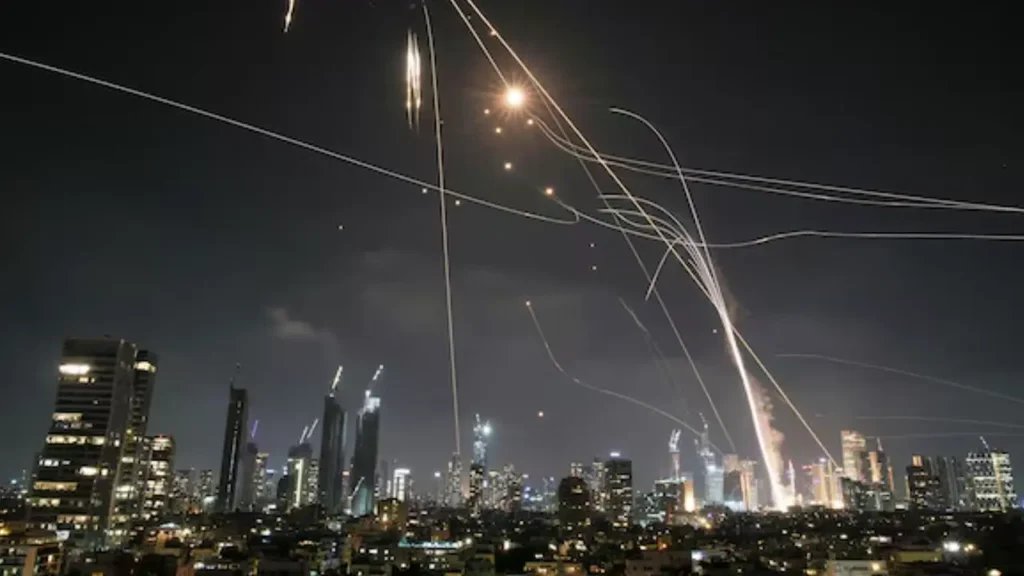Tensions between Iran and Israel flared again late Friday as both countries reported fresh missile and drone strikes amid a deepening conflict.
A video posted on social media platform X, and verified by Al Jazeera, appeared to show early signs of Israeli airstrikes in Tehran. This development follows an announcement by Israeli officials confirming a new round of attacks on Iranian territory.
In response, Iran claimed to have launched retaliatory strikes, targeting Israeli military positions. According to Iran’s state-run Press TV, Iranian missiles and drones hit multiple sites inside Israel. While these claims have not yet been independently verified, Israel’s Channel 13 cited “initial reports” suggesting that Iranian missiles struck the northern port city of Haifa and the nearby town of Tamra.
The situation remains fluid, with both sides yet to provide detailed official confirmations or casualty figures. Media outlets continue to rely on partial information and early visuals as the scale and impact of the exchanges are assessed.
Meanwhile, domestic unease is growing in Israel. Speaking to Al Jazeera, Israeli political commentator Ori Goldberg said that while many Israelis support military action against Iran, there is a growing sentiment that the government has failed to adequately prepare or protect the population.
“Israelis are extremely ambivalent,” Goldberg noted, explaining that there is widespread backing for hitting back at Iran, as the government portrays Tehran as an existential threat. “There is mass support, a very broad consensus, that Israel should go after Iran because Iran wants to destroy Israel – that’s the official narrative.”
However, he added that many in Israel doubt the effectiveness of the current strategy. “People know these strikes are unlikely to destroy Iran’s nuclear programme or spark regime change. There’s growing cynicism, with jokes circulating that the strikes are politically motivated to serve the interests of Israeli leaders.”
Goldberg said the lack of trust in the government’s handling of the crisis is leading many citizens to take matters into their own hands. “They are preparing to care for themselves as this war continues. They have no trust in the official forecast or evaluation that the government has delivered.”
Iran ready for prolonged war, will intensify attacks: security official
Tehran is preparing for a prolonged conflict and plans to escalate its military response, a senior Iranian security official has told Al Jazeera.
Speaking on condition of anonymity, the official said Iran did not initiate the war but would be the one to determine how it ends. “This is Netanyahu’s war,” the official said, warning that its eventual outcome would be “the destruction of the Israeli regime.”
The official stated that Iran’s actions are aimed at defending its people, adding that the United States must reconsider its support for Israel. “President Donald Trump must decide whether he wants to continue wasting American taxpayers’ money on Netanyahu’s ambitions,” the official said.
The remarks come amid heightened regional tensions following Israeli strikes on Iranian targets, and reflect a growing shift in rhetoric from Tehran, suggesting a longer-term escalation in the conflict.
Iran threatens to target Western bases in Middle East over support for Israel
Iran has also warned that it could launch attacks on Western military bases in the Middle East if countries like the United States and the United Kingdom continue to support Israel in the ongoing conflict.
Such action, if carried out, risks expanding the war beyond its current scope, potentially drawing in other countries and further destabilising the region.
The UK maintains military forces in several locations across the Middle East, including Iraq and Syria, where troops were originally deployed to fight ISIL. British forces are also stationed in Gulf countries such as the UAE, Qatar, Bahrain, and Oman, in addition to a major sovereign base in Cyprus. The United States has a similarly widespread military presence in the region.





